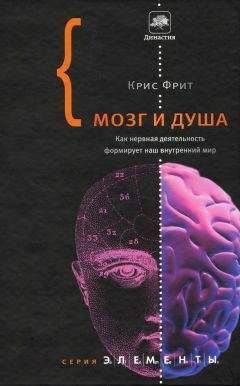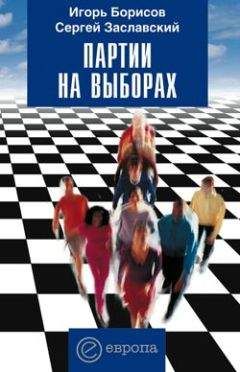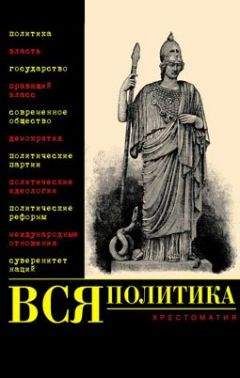This kind of psychotherapy would be extremely useful for
those people who need it most, but it has unfortunately proved
too risky for a psychotherapist. Patients easily make connective
transfers, unfortunately all too often correct, between the in-
formation learned during such therapy (particularly in the area
of psychopathy) and the reality surrounding them under the
rule of so-called “popular democracy”. Former camp inmates
are unhappily unable to hold their tongues in check, which
causes intervention on the part of political authorities.
When American soldiers returned from North Vietnamese
prison camps, many of them proved to have been subjected to
indoctrination and other methods of influencing by pathologi-
cal material. A certain degree of transpersonification appeared
in many of these. In the U.S.A. this was called “programming”
and outstanding psychotherapists proceeded to effect therapy
for the purpose of deprogramming them. It turned out that they
met with opposition and critical commentary concerning their
skills, among other things. When I heard about this, I breathed
a deep sigh and thought: Dear God, what interesting work that
would make for a psychotherapist who understands such mat-
ters well.
The pathocratic world, the world of pathological egotism
and terror, is so difficult to understand for people raised outside
the scope of this phenomenon that they often manifest childlike
naiveté, even if they have studied psychopathology and are
psychologists by profession. There are no real data in their
behavior, advice, rebukes, and psychotherapy. That explains
why their efforts are boring and hurtful and frequently come to
naught. Their egotism transforms their good will into bad re-
sults.
234
NORMAL PEOPLE UNDER PATHOCRATIC RULE
If someone has personally experienced such a nightmarish
reality, he considers people who have not progressed in under-
standing it within the same time frame to be simply presump-
tuous, sometimes even malicious. In the course of his experi-
ence and contact with this macrosocial phenomenon, he has
collected a certain amount of practical knowledge about the
phenomenon and its psychology and learned to protect his own
personality. This experience, unceremoniously rejected by
“people who don’t understand anything”, becomes a psycho-
logical burden for him, forcing him to live within a narrow
circle of persons whose experiences have been similar. Such a
person should rather be treated as the bearer of valuable scien-
tific data; understanding would constitute at least partial
psychotherapy for him, and would simultaneously open the
door to a comprehension of reality.
I would here like to remind psychologists that these kinds of
experiences and their destructive effects upon the human per-
sonality are not unknown to scientific practice and experience.
We often meet with patients requiring appropriate assistance:
individuals raised under the influence of pathological, espe-
cially psychopathic, personalities who were forced with a
pathological egotism to accept an abnormal way of thinking.
Even an approximate determination of the type of pathological
factors which operated on him allow us to pinpoint psycho-
therapeutic measures. In practice we most frequently meet
cases wherein such a pathological situation operated on a pa-
tient’s personality in early childhood, as a result of which we
must utilize long term measures and work very carefully, using
various techniques, in order to help him develop his true per-
sonality.
Children under parental pathocratic rule are “protected” un-
til school age. Then they meet with decent, normal people who
attempt to limit the destructive influences as much as possible.
The most intense effects occur during adolescence and the
ensuing time frame of intellectual maturation which can occur
with the input of decent people. This rescues the society of
normal people from deeper deformations in personality devel-
opment and widespread neurosis. This period remains within
persistent memory and is thus amenable to insight, reflection,
POLITICAL PONEROLOGY
235
and disillusion. Such people’s psychotherapy would consist
almost exclusively of utilizing the correct knowledge of the
essence of the phenomenon.
Regardless of the social scale within which human indi-
viduals were forcibly reared by pathological persons, whether
individual, group, societal, or macrosocial, the principles of
psychotherapeutic action will thus be similar, and should be
based upon data known to us, and an understanding of the psy-
chological situation. Making a patient aware of the kind of
pathological factors which affected him, and jointly under-
standing the results of such effects, is basic to such therapy. We
do not utilize this method if, in an individual case, we have
indications that the patient has inherited this factor. However,
such limitations should not be consistent with regard to macro-
social phenomena affecting the welfare of entire nations.
From the Perspective of Time
If a person with a normal instinctive substratum and basic
intelligence has already heard and read about such a system of
ruthless autocratic rule “based on a fanatical ideology”, he feels
he has already formed an opinion on the subject. However,
direct confrontation with the phenomenon will inevitably pro-
duce in him the feeling of intellectual helplessness. All his
prior imaginings prove to be virtually useless; they explain next
to nothing. This provokes a nagging sensation that he and the
society in which he was educated were quite naive.
Anyone capable of accepting this bitter void with an aware-
ness of his own nescience, which would do a philosopher
proud, can also find an orientation path within this deviant
world. However, egotistically protecting his world view from
disintegrative disillusionment and attempting to combine them
with observations from this new divergent reality, only reaps
mental chaos. The latter has produced unnecessary conflicts
and disillusionment with the new rulership in some people;
others have subordinated themselves to the pathological reality.
One of the differences observed between a normally resistant
person and somebody who has undergone a transpersonifica-
tion is that the former is better able to survive this disintegrat-
236
NORMAL PEOPLE UNDER PATHOCRATIC RULE
ing cognitive void, whereas the latter fills the void with the
pathologic propaganda material without sufficient controls.
When the human mind comes into contact with this new re-
ality so different from any experiences encountered by a person
raised in a society dominated by normal people, it releases
psychophysiological shock symptoms in the human brain with
a higher tonus of cortex inhibition and a stifling of feelings,
which then sometimes gush forth uncontrollably. The mind
then works more slowly and less keenly because the associative
mechanisms have become inefficient. Especially when a person
has direct contact with psychopathic representatives of the new
rule, who use their specific experience so as to traumatize the
minds of the “others” with their own personalities, his mind
succumbs to a state of short-term catatonia. Their humiliating
and arrogant techniques, brutal paramoralizations, and so forth
deaden his thought processes and his self-defense capabilities,
and their divergent experiential method anchors in his mind. In
the presence of this kind of phenomenon, any moralizing
evaluation of a person’s behavior in such a situation thus be-
comes inaccurate at best.
Only once these unbelievably unpleasant psychological
states have passed, thanks to rest in benevolent company, is it
possible to reflect, always a difficult and painful process, or to
become aware that one’s mind and common sense have been
fooled by something which cannot fit into the normal human
imagination.
Man and society stand at the beginning of a long road of
unknown experiences which, after much trial and error, finally
leads to a certain hermetic knowledge of what the qualities of
the phenomenon are and how best to build up psychological
resistance thereto. Especially during the dissimulative phase,
which makes it possible to adapt to life in this different world
and thus arrange more tolerable living conditions. We shall
then be able to observe psychological phenomena, knowledge,
immunization, and adaptation such as could not have been
predicted before and which cannot be understood in the world
remaining under the rule of normal man’s systems. A normal
person, however, can never completely adapt to a pathological
POLITICAL PONEROLOGY
237
system; it is easy to be pessimistic about the final results of
this.
Such experiences are exchanged during evening discussions
among a circle of friends, thereby creating within people’s
minds a kind of cognitive conglomeration which is initially
incoherent and contains factual deficiencies. The participation
of moral categories in such a comprehension of the macrosocial
phenomenon, and the manner in which particular individuals
behave, is proportionally much greater within such a new
world view than the above adduced scientific knowledge would
dictate. The ideology officially preached by the pathocracy
continues to retain its ever-diminishing suggestive powers until
such time as human reason manages to localize it as something
subordinate, which is not descriptive of the essence of phe-
nomenon.
Moral and religious values, as well as a nation’s centuries-
old cultural heritage, furnish most societies with support for the
long road of both individual and collective searching through
the jungle of strange phenomena. This apperceptive capacity
possessed by people within the framework of the natural world
view contains a deficiency which hides the nucleus of the phe-
nomenon for many years. Under such conditions, both instinct
and feelings, and the resulting basic intelligence, play instru-
mental roles, stimulating man to make selections which are to a
great extent subconscious.
Under the conditions created by imposed pathocratic rule in
particular, where the described psychological deficiencies are
decisive in joining the activities of such a system, our natural
human instinctive substratum is an instrumental factor in join-
ing the opposition.
Similarly, the environmental, economic, and ideological
motivations which influenced the formation of an individual
personality, including those political attitudes which were as-
sumed earlier, play the role of modifying factors, though they
are not as enduring in time. The activity of these latter factors,
albeit relatively clear with relation to individuals, disappear
within the statistical approach and diminish through the years
of pathocratic rule. The decisions and the choices made for the
side of the society of normal people are once again finally de-
238
NORMAL PEOPLE UNDER PATHOCRATIC RULE
cided by factors usually inherited by biological means, and thus
not the product of the person’s option, and predominantly in
subconscious processes.
Man’s general intelligence, especially his intellectual level,
plays a relatively limited role in this process of selecting a path
of action, as expressed by statistically significant but low corre-
lation (-0.16). The higher a person’s general level of talent, the
harder it usually is for him to reconcile himself with this differ-
ent reality and to find a modus vivendi within it.
At the same time, there are gifted and talented people who
join the pathocracy, and harsh words of contempt for the sys-
tem can be heard on the part of simple, uneducated people.
Only those people with the highest degree of intelligence,
which, as mentioned, does not accompany psychopathies, are
unable to find meaning to life within such a system.106 They are
sometimes able to take advantage of their superior mentality in
order to find exceptional ways in which to be useful to others.
Wasting the best talents spells eventual catastrophe for any
social system.
Since those factors subject to the laws of genetics prove de-
cisive, society becomes divided, by means of criteria not
known before, into the adherents of the new rule, the new mid-
dle class mentioned above, and the majority opposition. Since
the properties which cause this new division appear in more or
less equal proportions within any old social group or level, this
new division cuts right through the traditional layers of society.
If we treat the former stratification, whose formation was deci-
sively influenced by the talent factor, as horizontal, the new
one should be referred to as vertical. The most instrumental
factor in the latter is good basic intelligence which, as we al-
ready know, is widely distributed throughout all social groups.
Even those people who were the object of social injustice in
the former system and then bestowed with another system,
which allegedly protected them, slowly start criticizing the
latter. Even though they were forced to join the pathocratic
party, most of the former prewar Communists in the author’s
106 Historically, pathocracies target the intelligentsia for elimination first. As




